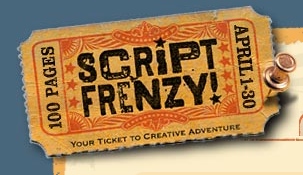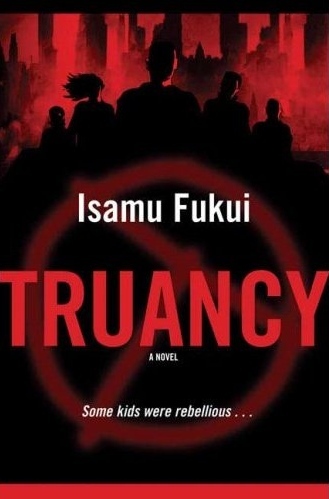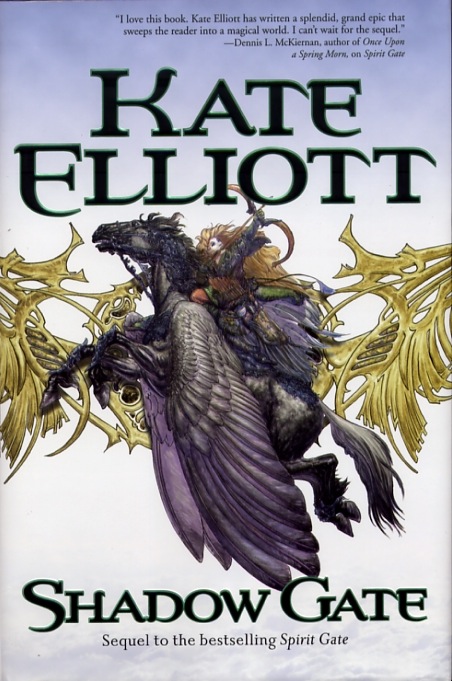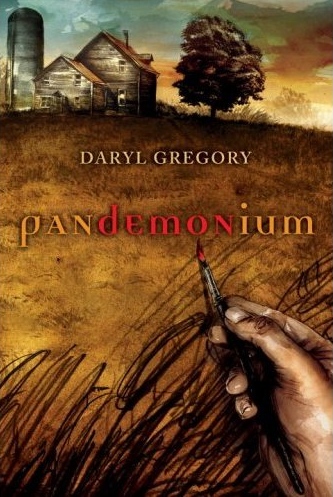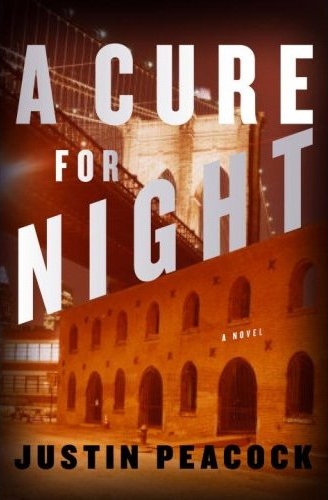|
|
|
|
This Just In...News
From The Agony Column
|
| |
|
05-18-08: Isamu Fukui NPR Link
|
Email This Story
Here's
the link to the NPR Web Page with my story on Isamu Fukui.
Readers are encouraged to use the Email This Story button early and often;
think Chicago voters, and the Night of the Voting Dead. Readers are also
encouraged to email me and tell me what you think, and suggest any stories
that they'd particularly like to hear.
|
| |
|
05-16-08: Kate Elliot Steps Through the ‘Shadow Gate ;
Agony Column Podcast News Report : A Conversation with Seana Graham
; First Books for NPR : Isamu Fukui
|
First Books for
NPR : Isamu Fukui
|
Buy
the book – email the story. |
Weekend
Edition Sunday will be running my First Books story on Isamu
Fukui this Sunday, May 18. The report will run as part of an
Education Package, so it wont be in the final "artsy"
segment of the show. My thanks, as ever, to the Weekend Edition crew,
to my editor, and of course to the stellar guests ¬Isamu Fukui, his
agent Matt Bialer, and his editor at Tor Books, Susan Chang. Readers who
wish to help this website and the accompanying podcast, which, not to
put too fine a point up on it, is not in the "for profit" range,
but is in the "hanging on for dear life" range, would be thanked
for going to the link I'll provide on Sunday morning and using the "email
this story" button early and often. If this story does well, NPR
may pony up to let me do more, which will mean a more varied slate of
guests for you the listeners and readers and an actual slate as opposed
to a "Website no longer being updated" message on the home page.
|
Upping the Ante
|
Literally
a flight of fantasy. |
So, say youve
got yourself immersed in a nice fantasy; you like the characters, the
setting is detailed and gritty, the prose is carefully turned and beautifully
evocative. A great example of that world would be The Hundred of 'Spirit
Gate' by Kate Elliot. Here's the kind of fantasy that
just oozes quality, the kind of book you can easily get lost in. And get
lost you have, right?
The problem arrives with the second book in the series. Having immersed
yourself in a world and having learned your history, you want to see the
characters you love do something more entertaining than get on a horse
and ride somewhere, cook a couple of dinners by the side of the road and
chat about the dangers of a nebulous menace that you the reader have yet
to see. You want the writer to Up the Ante.
'Shadow Gate' (Tor / Tom Doherty Associates ; April 15, 2008 ; $25.95)
does just that and then some. It's one thing to up the action, to throw
Our Heroes against a Foe Implacable. Again, we pretty much expect that
sort of Ante-upping. What Elliot does, however, is much more intriguing.
She ups the ante with serious character development, using the toolkit
of the fantastic to externalize the changes within a character –
and I'm not going to say who as it comprises a spoiler for those who have
not read the first book. If you want that, look at the jacket flap, but
as ever, I recommend cold immersion in Elliot's intelligently designed
universe. She's certainly a benevolent god so far as readers are concerned!
|
Agony Column Podcast
News Report : A Conversation with Seana Graham : Script Frenzy
Today's podcast catches
up with Seana Graham, a buyer for Bookshop Santa Cruz
who I've been talking to about her writing career. She found publication
in Lady Churchill's Rosebud Wristlet,
and now she's working on new stories and a novel. Today, she talked to
me about Script Frenzy, the
film version of Nanowrimo. We
also talked about a fascinating submission service that she's engaged
to help her place stories. Here's
an MP3 of my conversation with a talented writer exploring the world of
freelance fantasy fiction.
|
| |
|
05-15-08: Daryl Gregory Unleashes Pandemonium : Monsters of the Id ;
Agony Column Podcast News Report : A Conversation with Bookseller Arsen
Kashkashian
|
Monsters of the
Id
Daryl Gregory
is going to be a familiar name to those who subscribe to The Magazine
of Fantasy and Science Fiction or Asimov's. He's published
short stories in both and won a reader's award from Asimov's.
But apparently while he was beavering away in the fiscally unrewarding
world of short stories, he was also working on a novel that I suspect
may earn him a lot of instant recognition. 'Pandemonium' (Del Rey / Random
House ; September 2008 ; $13) is going to come out as a trade paperback,
which I think is sort of a shame; I hope that it doesn't hurt the sales
for this book, which looks to me like a contender for awards from the
horror, science fiction or fantasy camps, depending on who stakes their
claim first.
Del Pierce is hanging about in a place familiar to many – the United
Terminal at O'Hare airport, when there's a disturbance. Not the guy who
doesn't want to be searched, or the woman with the underwire who sets
off a metal detector, no, it's just another demonic possession.
And you quickly suss that you'll not be arriving in this O'Hare airport
via any method of transport other than reading.
In Del Pierce's world, turns out that round about the 1950's, demonic
possessions began to occur, but not, I hasten to add, the sort that involve
Father Merrin and projectile vomiting. No, in Gregory's intriguing vision,
"just folks" are possessed by entities that seem to spring from
the Jungian collective unconscious; so the scene in the terminal turns
into an art studio session because the being that possesses the man covered
in gray dust, as it were, is the Painter – at least that what Del
surmises when the possessed sits down and starts painting. Del should
have a pretty good sense of these things. He was once possessed by the
Hellion. But therapy and a loving family have made him all better. Gregory's
premise is certainly clever, but he backs it up with good writing. The
prose, pacing, plotting and characterization are all top notch; careful,
quiet and sleekly powerful when necessary. Gregory supplies the sort of
grit and details to make this surreal world seem as real as long wait
at the airport, but a whole lot more exciting.
Yes, you'll get a lot more in this novel than just a good premise, but
the quality is high enough that I think readers are best advised to pick
it up with as little information as possible – I'd even suggest
avoiding the back cover. The surprises in this superbly crafted novel
are worth preserving and encountering on their own terms. Call up your
local independent bookstore now and advance order a copy. Make them call
you when it arrives. I suspect that when the possessions finally do begin,
there will be a number of happily incapacitated individuals. After all,
you are a monster from your own id – the Reader.
|
Agony Column Podcast
News Report A Conversation with Bookseller Arsen Kashkashian : Boulder
Book Store
|

|
Had I known that I'd
be seeing a truly memorable bookstore, I'd probably have taken my recording
gear with me when I visited Boulder, Colorado to see my nephew graduate
from college. But at least I was lucky enough to get to visit the Boulder
Book Store on the Pearl Street Mall. I spent a lot of time and no
small amount of money there, for good reason; this is yet perfect example
of the archetypal general-interest bookstore run by locals, for locals,
with an eclectic but large selection of titles, a huge, homey floor space
and just a – comfortable feel. I spook with buyer Arsen
Kashkashian about how he chooses their books, and the the importance
of their wonderful retail space and location. It's clear that this is
one of the "anchor" stores in this picture-book downtown walking
mall. Selection plays as big a part as location. You can hear our conversation
via this link. Should you visit Boulder, and it is a beautiful town to
visit, make sure you stop by and alas, bring plastic. You'll need it.
|
| |
|
05-14-08: Justin Peacock Finds 'A Cure for Night'
|
Agony Column Podcast
News Report : Legally Informed, A 2008 Interview With Justin Peacock
There's a reason that
so many lawyers take to writing novels, and it's at the center of 'A Cure
for Night' (Doubleday / Random House ; September 2008 ; $24.95) by Justin
Peacock. Both vocations involve a single core talent; the ability
to tell a compelling story. We know that writers need to tell a good story,
even if theyre working in non-fiction, but it's not so apparent
that the same is true for lawyers until we're presented with the evidence.
'A Cure For Night' is both an excellent novel and excellent evidence of
the need for strong storytelling skills, no matter what your calling.
Peacock's novel starts out in the toilet, and plunges downwards. Joel
Deveraux is a mid-level lawyer beavering through stacks of paper for a
big Manhattan law firm. Sounds like a decent, if boring life, but Deveraux
has fallen into the arms and addictions of Beth. Something snorted, something
shared, well, until Beth dies in the company bathroom of a drug overdose
and Joel's open secret becomes grounds for dismissal. Turn a page in the
book and his life – he's a public defender, working for twenty-something
scholarship cases busted for petty possession. Again, a life, less boring
if also less remunerative though certainly more redemptive, especially
when Devereaux wangles his way as the second chair in a high-profile racially-charged
shooting. Here's where Devereaux finds out that telling a story does not
tie one to the truth in any sense, and that a sense of the truth is not
necessarily congruent with a sense of the story. Writing, and laws are
complicated.
'A Cure For Night' is addictively easy to read. Peacock's prose is limpid
but not slick, and he brings sense of authenticity to his portraits of
people and places. 'A Cure for Night' traverses high-rises and low lives
with equal aplomb as Peacock paints a portrait of a city that can change
character in a ten-minute walk. However, the city is but one of the characters
to captive the reader with an innate sense of authenticity. Whether he's
portraying high-flyers who see themselves as movers and shakers or self-involved
students popped on a why-bother drug sting, Peacock creates people who
seem to walk off the page and into lives we can't see but can imagine.
And the lives we do see seem as full as our own, only more exciting in
a manner that's better read about than experienced in person.
I managed to get
a chance to speak with Peacock about his double career as a writer and
a lawyer. We talked about the import of storytelling, his legal and
writing experiences and about the nature of NYC and how it informs his
novel. He's as engaging on the phone as he is on the printed page. As
for the title of the book, I suspect that readers who spend the night
finishing it will find it's self-descriptive.
|
| |
|
05-13-08: Brian James Scores With 'Zombie Blondes' ; Agony Column Podcast
News Report : A 2008 Interview With René Hicks
|
Pretty, Popular
& Dead
|
High
concept as opposed to getting high while conceptualizing. |
Talk about high concept
– I dont think you can boil it down much further than 'Zombie
Blondes' (Feiwel and Friends / Macmillan ; July 2008 ; $16.95). Brian
James hits the ground running, no doubt in a hipper-than-thou
ensemble, and takes no prisoners that he's not willing to eat in his latest
Young Adult novel that has just enough cheese (no cake, thank you very
much) to grease the wheels that might other be thinking useful thoughts.
Do I have to offer an elaborate explanation of what's the what with 'Zombie
Blondes'? OK, I'll give you a bit of a précis. Hannah Sanders moves
around a lot. Her Dad is an ex-cop with an unhappy past and an inability
to hang too long in any one setting. But Maplecrest is different. It's
so normal, so retro, so much of a throwback. The blondes are popular and
their hair is big.
But they're kind of pale. And, as it happens, sort of, like,
dead. Material like this could go a couple of ways, and I'm glad
that James handles it with the aplomb he brings to this slick and slightly
sick novel. Look, we've bathed in the blood of zombie movies and literature
for some 40 years now. George Romero's iconic movie started the feast
and it's continued to this day. James gives us gore and violence, but
it's less upsetting than the social ostracism and one-upsmanship that
one can find going on in any high school hallway anywhere in America.
Fitting in, cutting out, eating the competition alive – now it all
makes sense. They're dead souls. It's no surprise the bodies follow suit.
James doesn't wear his social statement on his sleeve, not even on a silk-screened
T-shirt. Instead, he does something very unusual with his high concept.
He focuses on the characters and lets the concept work its way out of
them. Rather like a larval alien waiting to burst forth from the chest
of an unwary victim. Of course they're flesh-eating zombies.
They're popular cheerleaders. The question rapidly becomes, "Who
else?" Indeed look around you; anyone you know who might be deemed
"chipper"? Put it in pixels and one is reminded that "chipper"
has two meanings.
|
Agony Column Podcast
News Report : A 2008 Interview With René Hicks : "I'm Just
One Blade of Grass"
Today's podcast is
a conversation with comedienne René Hicks, who recently
appeared at 'A Night of Comedy', the Santa Cruz benefit for WomenCARE.
You may have heard some excerpts from the conversation on Talk
of the Bay, but
here's the whole interview, uncut and unedited.
Hicks hits both ends of the spectrum in our talk; she's quite serious
in some moments and quite scathingly funny in others. This is probably
the combination that keeps her in demand. To paraphrase an old comic book
line, with great laughter comes great responsibility. Hicks covers the
whole terrain and it's clear that her ability to evoke great laughs is
just a subset of her ability to excavate the truth in all its ugly beauty.
|
| |
|
05-12-08: A 2008 Interview with Eleanor Coppola
|
"It's a struggle – but the struggle enriches both aspects"

|
Art versus life; everyday, do-the-dishes, wash-the-laundry life. There's
no contest more fascinating, more central to the creation of any work
of art, be it a book, a movie, a song, a painting or something not yet
experienced by an audience. There are two halves of every artistic transaction.
The artist produces the piece, and this part of the process is easily
identified and isolated, analyzed and understood. Well, perhaps analysis
and understanding are not so easy to achieve. But at least with any work
of art in front of us, we know where to start.
That's not so easily done with regards to the audience experience. Taking
stock of how we react involves the dangerously distorting act of introspection.
Eleanor Coppola is a skilled observer of self and others,
as revealed in her book 'Notes on a Life'. Just how skilled you'll begin
to understand when you hear our
interview about the book and the life it observes. She has a way of
discovering the truth in almost every sentence, a means of ferreting out
what is interesting from what looks interesting. We talked about her life
in the arts, from her first gig at the age of 26, working with Francis
Ford Coppola on Dementia 13. This was a Roger Corman movie that imprinted
itself upon my psyche at a tender age as I watched it on Chiller in LA,
the Saturday afternoon movie that came on after The Outer Limits. Mrs.
Coppola was an assistant to the set designer, who saw her destiny as an
artist. But once she married the very traditional Francis Ford Coppola,
she was on a different path. She would in time realize that was indeed
pursuing an artistic life, the art of life itself – observation.
Her voice is strong; she speaks with authority of the struggle between
art and family and how that struggle makes both stronger. Hear for yourself;
read for yourself. Let it become a part of your everyday life, one or
both sides of your struggle.
|
| |
|
|
